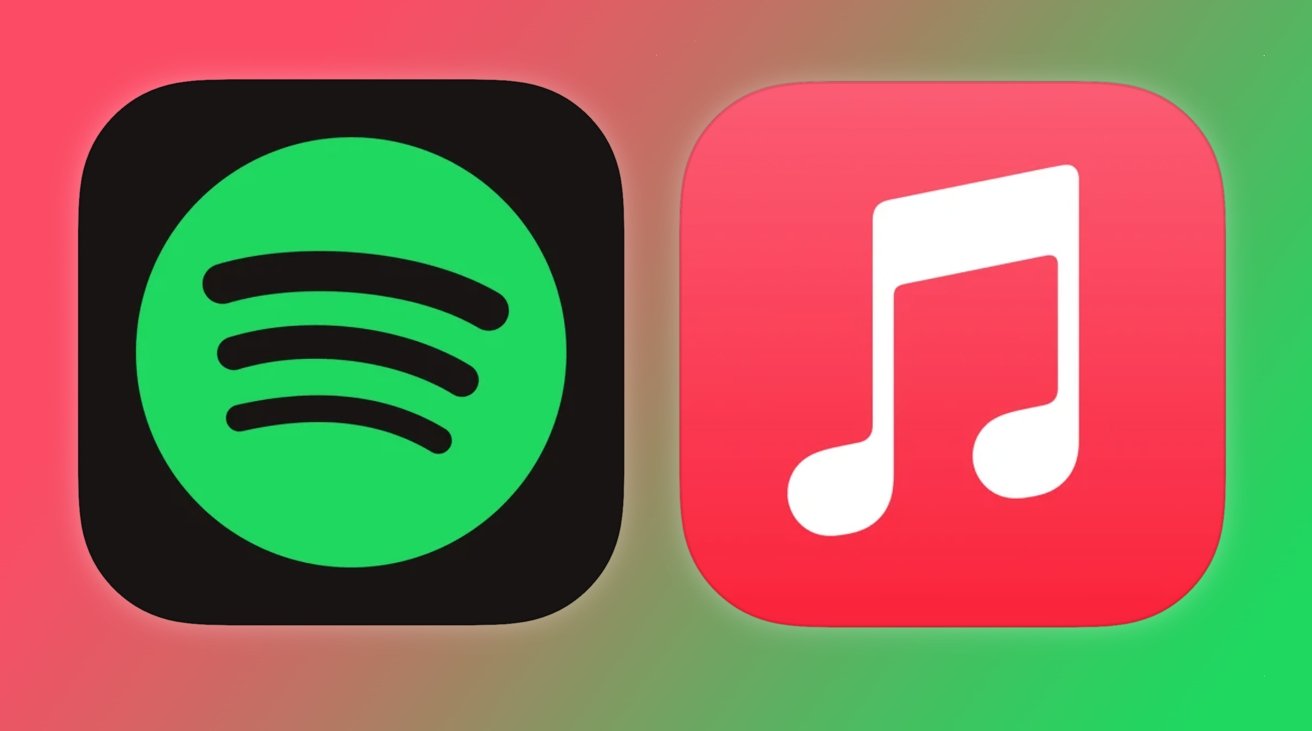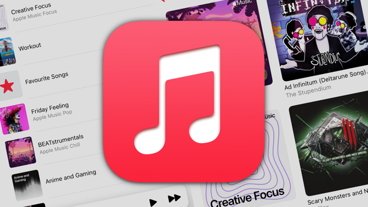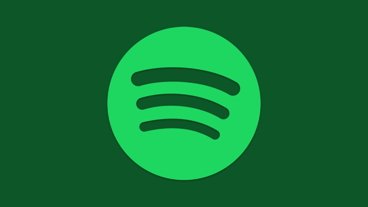EU antitrust chief remarks about $2 billion Apple Music fine ignores Spotify dominance
In an interview on Monday, the European Union antitrust chief said that its $2 billion fine on Apple Music was over obvious consumer harms leading to discovery issues — despite Spotify holding more than twice the market share.
European Commission Executive Vice President Margrethe Vestager has been defending the EU's $2 billion fine, saying that it was specifically to punish past behavior and ensure Apple does not block developers offering cheaper alternatives to customers.
"[The fine is] the equivalent of 0.5% of global turnover, so obviously, this is not a fine that would sort of shake Apple as such," she told CNBC. "What it does is that it punish past behavior... and for the future, not to be able to say to their app developers, listen, you cannot tell your customers that there is a cheaper offer."
"I think it is quite obvious that there is consumer harm if consumers have no choice to find the cheaper offer of their favorite music streaming services," she continued. "There are music streaming apps on the Apple App Store, and of course you can choose to pay the 30% fee, but it would be good if you could also know that you can go to the services own website and get a cheaper offer, and that is what we are challenging."
"[If] you look at the price difference, because these app developers, they have no choice but to pass on the Apple fee to their consumers," said Vestager. "You see, there's a 30% price increase compared to the price increase and I think most people would agree that that kind of price increases, comparing to a cheaper offer, that is real harm to consumers."
CNBC asked whether Apple's claim that the EU has met with chief proponent Spotify 65 times during the investigation.
"Well, not personally, obviously, since I have a ton of other things to do as well," said Vestager. "But it is true that in every case we have, we work with market participants, which means that we have very, very, very good experience in figuring out what is real proof and what is just vested interest, and that, of course, is absolutely key."
"It will also go through the compliance of the markets act that we would want to hear from third parties," she continued. "Do they get what the DMA is supposed to give them, which is an open market where they can compete?"
Apple Music and an open market
It is true that Apple used to famously refuse to allow iOS app developers to communicate directly with their users, or especially to show them links to alternative, cheaper pricing. This anti-steering measure was surely not in the best interests of customers, but Apple has been forced to change it in the US.
Regarding whether firms such as Spotify are getting "an open market where they can compete," however, the EU does not seem to have figured out "what is real proof and what is just vested interest." For while Apple Music aims to be a competitor to Spotify, it is simply failing.
Different market analyses vary, but Apple Music is typically rated as the third or fourth most popular streaming music services. In every analysis, though, the number one choice is Spotify, and it's not close.
Even with its runaway global number one position, though, Spotify has been regularly posting a loss in its quarterly revenue reports. Consequently, Spotify needs to cut expenses and grow its business, both of which it could do if it can persuade the EU to prevent Apple charging it for in-app subscriptions.
"Fundamentally, their complaint is about trying to get limitless access to all of Apple's tools without paying anything for the value Apple provides," said an Apple spokesperson in a statement to AppleInsider in February 2024.
 William Gallagher
William Gallagher











 Mike Wuerthele
Mike Wuerthele

 Malcolm Owen
Malcolm Owen
 Chip Loder
Chip Loder


 Christine McKee
Christine McKee
 Michael Stroup
Michael Stroup








31 Comments
This is so wrong on so many levels. I think Ms. Vestager should be investigated.
And the iPhone has a much lower market share than android in Europe, too.
If you run a business of any size you recognize the hidden Governmental shakedowns. There are "taxes" called everything but what they are. Taxes. Apple's getting a bit of "You're an American company challenging a European company" Tax it seems.
Spotify only used IAP in the App Store for 2 years out of the 15 that they've been there. The EU is not only ignoring Spotify's market dominance, they're also ignoring 13 years of proof that Spotify's customers DID know that they could pay for the subscription on the internet.